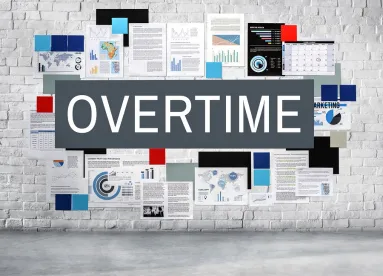Two new sets of allied combatants have joined the fray looking to overturn the Department of Labor’s (DOL) new overtime regulations and halt the imminent effective date. The DOL’s new rules more than double the salary threshold (to $47,476) for workers to even be considered for the so-called “white collar” exemptions to the Fair Labor Standards Act’s (FLSA) overtime premium requirements and are currently scheduled to take effect Dec. 1.
On Sept. 20, two complaints were filed in the Eastern District of Texas: one by a coalition of more than 50 business groups, including the U.S. Chamber of Commerce, and one by a group of 21 states (represented by their attorneys general), led by Texas and Nevada. The states, as government employers, argue that the new regulations could force cuts in government services, unconstitutionally mandate how state employees are paid, unilaterally and unlawfully deplete state resources, and ignore the text of the FLSA by focusing on salary thresholds as opposed to whether employees are performing executive, administrative, or professional duties that currently render them exempt from overtime premiums. The states also decry the automatic indexing provision that would increase the salary threshold every three years, contending that future increases should be subject to notice and comment.
For those curious, the following states joined Texas and Nevada in their complaint: Alabama, Arizona, Arkansas, Georgia, Indiana, Iowa, Kansas, Kentucky, Louisiana, Maine, Michigan, Mississippi, Nebraska, New Mexico, Ohio, Oklahoma, South Carolina, Utah and Wisconsin.
The business coalition echoes many of these concerns, arguing that the new regulations are an overreach by the DOL and the executive branch under the Administrative Procedures Act, that the DOL’s reasons for increasing the threshold don’t comport with the language of the FLSA, and that the careers of many employees across the country will be adversely effected when employers are forced to reclassify them as hourly instead of salaried workers.
For their part, the Obama administration and proponents of the new overtime rules are confident in the legality of the regulations. Further, although the plaintiffs were no doubt trying to take advantage of what they perceive to be a potentially friendly district court in Texas – the same state where a federal judge recently enjoined the DOL’s controversial persuader rule – the DOL may have caught a break when both cases were assigned to the only district judge in the Eastern District of Texas appointed by President Obama.




 />i
/>i

